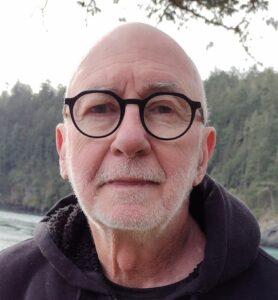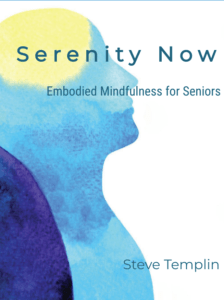Anxiety isn’t our foe, but it certainly feels that way. The real enemy is our resistance to our anxious feelings and the awareness of the things in our life they relate to.
Resisting anxiety sounds like a no-brainer and the thought of not resisting it, or even the willingness to feel it sounds counter-intuitive.
Anxiety is energy. It’s the emotional energy that creates that sick anxious feeling in your belly, it’s the biological energy that can generate a migraine, back pain, or Irritable Bowel Syndrome.
But it’s also the transformative energy or ‘chi’ of the universe that has the potential to carry us forward in life allowing us to more authentically reveal and share our unique gifts.
While this uncomfortable emotional energy seems to be disrupting the status quo, it’s really our felt, personal connection to the guiding wisdom of the universe with its potential to transform us.
Here’s the challenge, the universe needs our permission to carry us forward along our unique path. How do we give permission? We give permission by learning how to welcome or at least feel the anxious energy …. the feelings.
Saying ‘Yes’ to the Energy of Feelings
The renowned mythologist Joseph Campbell said that the purpose of great literature was to teach us how to ‘say yea to it all’, to say yes to the energy of feelings in our body because that felt experience transforms us.
My experience is that to the degree we resist that bodily oriented process we experience anxiety. And if we can really block or snuff out the feeling energy of the universe we become depressed.
This isn’t to suggest that the biochemical model for anxiety or depression that’s focused on correcting imbalances of neurotransmitters like dopamine, serotonin, and GABA is wrong. But I am suggesting that there’s another perspective that can serve as an alternative or a compliment to more mainstream approaches.
Feeling the anxious energy is challenging for everyone, but especially so for the highly sensitive person. The HSP has usually learned to shy away from intense feelings (because the HSP feels so intensely) like you’d avert your gaze from a glaringly bright light.
This habit of turning away from feelings is a primary fuel for anxiety. Learning to make a safe place to experience feelings and rob anxiety of its fuel is the goal of the self-regulation strategies that I teach. Here are a few steps to help with transforming anxiety into authentic personal growth.
Three Steps for Transforming Anxiety with Heart Wisdom
The whole point of self-regulation training is to help us learn to safely re-inhabit our bodies, connect with our heart, and experience our feelings.
This wouldn’t be such a big deal if feelings were not so important. But since connecting with felt experience is the key to neurological balance, physical health, and emotional well-being …. heart-based self-regulation skills become indispensable for healing and personal growth.
I’ve personally witnessed hundreds of hours of heart rate variability studies with my patients. These sessions show an individual in real time, and often in a matter of minutes, the profound changes that can be made in the functioning of the autonomic nervous system …. that will positively influence their body, mind, and spirit.
These profound changes are the result of a simple adjustment in how they pay attention to their heart and feelings.
Here are three steps that will help to begin transforming anxiety. The key here is to feel safe …. possibly uncomfortable, but still feeling safe and not overwhelmed. If at any point any self-regulation exercise feels like it’s just too much just pause and leave it for another time or when you’re supported by someone who has more experience with the process.
- Acknowledge that something in you, some part of you feels anxious. You can notice where and how it feels in your body. You can also notice what it’s related to if you know what that is. This step helps to lower our resistance.
- Breathe slowly. If you know HeartMath’s Heart Focused Breathing technique now would be the time to take a few breathes to further dissolve your resistance to feeling anxiety. Connecting with your heart and breathing slowly sends new neural input to your brain …. which positively influences mood, hormonal activity, intuitive insight and creativity.
- Write expressively. Take five to fifteen minutes to freely write about what you feel. Give voice to the emotional feelings. Then finish your writing by describing how you’d really like things to be. Create an ideal scene that has positive emotion attached to it for best results. Take a few more slow breaths to finish.
I hope that these suggestions for transforming anxiety are helpful. It may help to remember that the impact of self-regulation skills on your brain, behavior, mood, and physcial health is cumulative …. so practice, practice, practice.


 Steve is a retired Doctor of Oriental Medicine, Acupuncture Physician, and HeartMath Trauma-Sensitive Certified Practitioner with over 35 years of clinical experience in the fields of Energy Medicine, Energy Psychology, and Biofeedback.
Steve is a retired Doctor of Oriental Medicine, Acupuncture Physician, and HeartMath Trauma-Sensitive Certified Practitioner with over 35 years of clinical experience in the fields of Energy Medicine, Energy Psychology, and Biofeedback. 